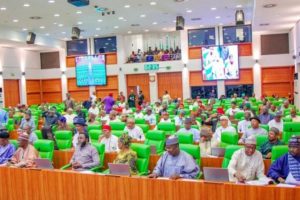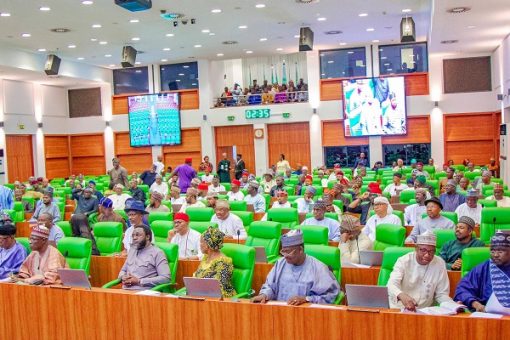
By Adeyemi Adekunle
Nigeria’s House of Representatives Committee on the Review of the 1999 Constitution has received proposals for the creation of 31 new states across the country’s six geopolitical zones, a move that could significantly alter the nation’s political and administrative landscape. The announcement, made on Thursday during a plenary session, was delivered by Deputy Speaker Benjamin Kalu, who outlined the conditions that must be met before any of the requests can be approved.
The proposals, which reflect long-standing demands for greater political representation and regional autonomy, span every part of Nigeria. The North Central region has submitted five requests, while the North East has put forward four. The North West and South East have both proposed five new states each, the South South has submitted four, and the South West has presented seven. If approved, these additions would substantially reshape Nigeria’s state structure, which currently consists of 36 states and the Federal Capital Territory (FCT).
Among the proposed states in the North Central zone are Okun, Okura, and Confluence from Kogi State, as well as Benue Ala and Apa from Benue State. A particularly notable proposal is for the Federal Capital Territory (FCT) to be granted statehood, a long-debated issue that would give Abuja full representation at the state level. In the North East, suggested states include Amana from Adamawa, Katagum from Bauchi, Savannah from Borno, and Muri from Taraba.
The North West region has put forward proposals for New Kaduna and Gurara from Kaduna State, Tiga and Ari from Kano State, and Kainji from Kebbi State. Meanwhile, the South East is seeking the creation of Etiti and Orashi as a potential sixth state in the region, along with Adada from Enugu, Orlu, and Aba. In the South South, proposals include Ogoja from Cross River, Warri from Delta, and Ori and Obolo from Rivers State.
The South West has submitted the highest number of proposals, with requests for Torumbe from Ondo, Ibadan from Oyo, Lagoon from Lagos, and Ogun and Ijebu from Ogun State. There are also demands for Oke Ogun/Ijesha, which would span Oyo, Ogun, and Osun States. The sheer number of proposals from the region underscores the growing push for increased administrative autonomy and improved governance structures.
The constitutional process for state creation in Nigeria is rigorous and complex. According to Section 8 of the 1999 Constitution (as amended), a request for a new state can only be passed if it receives support from at least two-thirds of the members of the Senate, the House of Representatives, the relevant State House of Assembly, and the Local Government Councils in the affected areas. Additionally, a referendum must be conducted within the concerned regions, with the results forwarded to the National Assembly for further consideration.
The Committee has emphasized that all proposals must strictly adhere to these constitutional requirements. Advocates for state creation have been directed to submit three hard copies of their full memoranda to the committee’s secretariat at the National Assembly Complex in Abuja, as well as an electronic copy to the committee’s official email address. This procedural rigor is intended to ensure that only serious and well-prepared proposals are considered.
The push for new states reflects long-standing grievances over political representation, economic marginalization, and resource allocation. Many advocates argue that Nigeria’s current state structure does not adequately reflect the country’s ethnic, cultural, and economic diversity. In regions like the South East, where there has been a persistent call for an additional state to balance representation with other zones, the proposals are seen as a long-overdue correction to historical imbalances.
Similarly, in the North Central and North East, proponents of state creation believe that breaking up larger states will bring government closer to the people, improve resource distribution, and enhance security coordination. For instance, the proposed FCT State is aimed at granting Abuja residents full political rights similar to those enjoyed by citizens of other states, including the ability to elect their own governor.
However, the proposals have sparked debate over the financial viability of creating new states. Critics argue that many existing states struggle to generate enough internally generated revenue (IGR) and are heavily dependent on federal allocations. The creation of additional states would increase administrative costs, potentially stretching Nigeria’s already strained national budget.
There is also concern that the move could deepen ethnic and regional divisions rather than resolve them. In the past, demands for new states have been driven by ethnic and political considerations, leading to fears that the process could further entrench identity-based politics. Additionally, some analysts warn that increasing the number of states could lead to more political appointments and bureaucracy rather than genuine development.
Despite these concerns, proponents of the state creation movement insist that restructuring Nigeria’s administrative map is essential for balanced development. They argue that new states would empower marginalized groups, improve governance efficiency, and allow for more localized economic planning. Supporters also believe that smaller states would be easier to manage, reducing corruption and enhancing service delivery.
The National Assembly’s review of the 1999 Constitution is an ongoing process, and the consideration of state creation proposals is just one aspect of broader constitutional reforms. Lawmakers are also examining other critical issues, including local government autonomy, electoral reforms, and judicial restructuring.
The coming months will be crucial as the House of Representatives Committee on Constitutional Review sifts through the proposals and determines which, if any, meet the constitutional threshold for further action. Public hearings and consultations with key stakeholders, including traditional rulers, civil society organizations, and state governments, are expected to follow.
Ultimately, the decision to create new states will require significant political will, consensus-building, and careful financial planning. Whether Nigeria moves forward with expanding its state structure or maintains the status quo, the debate has reignited discussions about the country’s governance model and the best way to achieve equitable development across its diverse regions.
For now, the proposals remain under review, and the fate of the 31 potential new states lies in the hands of lawmakers and the constitutional process that will determine Nigeria’s administrative future.




